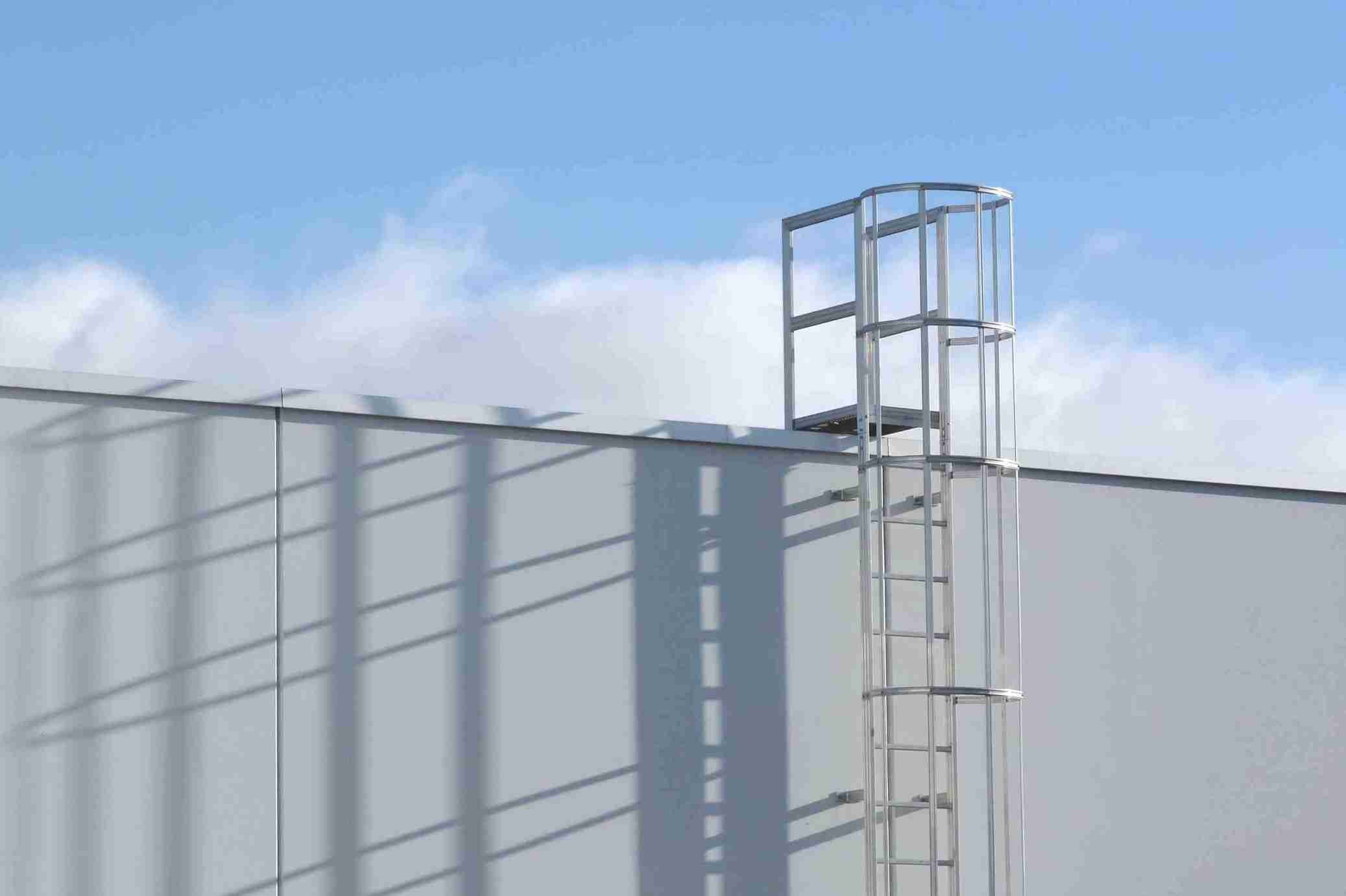
Ladder Ties and Ladder Restraints
How are Ladder Ties and Restraints installed?
The ladder restraint ties are typically installed in pairs around the outside of a building, no more than 2 meters high and have been designed to be used in conjunction with 3 metre ratchet straps, allowing for quick and easy use.
Following the guidelines of PUWER ladder restraint ties are to be inspected in accordance with the manufacturers’ recommendations.
This includes a regular visual inspection, combined with a physical pull test to determine the suitability of fixing. These restraint ties must be inspected by a suitable working at height Specialist Company a minimum of every 12 months.
See our full range of roof access ladders and associated products by clicking the links below:
The Key Benefits For Using Ladder Ties
Enables a person to work alone for short durations to complete a task where normally two people would be required
Provides a stable working environment when using removable access ladders
Installed in pairs around the outside of a building, no more than 2 meters high
3 metre Ratchet straps allow for quick and easy use
Straps are easily stored as part of operatives PPE or within vehicles to deploy whenever required
A more cost efficient solution than standard eyebolts
16 Questions when choosing a Fall Protection Company
Our Services
-

Height Safety Survey & Risk Assessment
-

Fall Arrest Design, Supply & Installation
-

Work at Height Inspection, Testing & Maintenance
-

Height Safety Training, Courses & Seminar
-
Ladder ties and restraints are to be used with removable access ladders in order to provide a stable working environment; they enable a person to work alone for short durations of time in order to complete a task where normally two people would be required.
-
The ladder restraint ties are typically installed in pairs around the outside of a building, no more than 2 meters high and have been designed to be used in conjunction with 3 metre ratchet straps, allowing for quick and easy use.
Following the guidelines of PUWER ladder restraint ties are to be inspected in accordance with the manufacturers’ recommendations.
This includes a regular visual inspection, combined with a physical pull test to determine the suitability of fixing. These restraint ties must be inspected by a suitable working at height Specialist Company a minimum of every 12 months.
See our full range of roof access ladders and associated products by clicking the links below:
Caged access ladders
Fall arrest ladders
Companionway ladders
-
As well as allowing operatives to use ladders on their own for a short period of time, ladder ties are a more cost efficient solution than safety eyebolts. Straps are easily stored as part of an operative’s PPE or within vehicles to deploy whenever required, making them a simple solution to potential fatal falls.
-
It is recommended in BS 8213 that when ladders are being used they should be secured at the base to eyebolts. It is also recommended that the top of the ladder should be secured with restraint ties if possible.
Ladder ties are covered under the umbrella legislation of the Provision and Use of Work Equipment Regulations 1998 (PUWER).
Testing/Inspection standards and frequency:The Provision and Use of Work Equipment Regulations (P.U.W.E.R) 1998 – minimum of every 12 months by a working at height specialist company. These systems must be inspected by a suitable working at height Specialist Company.
-
Ladder Ties are available in a range of materials and finishes, Please see below:
Materials:
Stainless Steel
Finishes:
Coated
Un‐coatedLadder ties can be used on any good quality brick, stone or concrete using polyester resin or similar adhesive. Ladder ties can also be secured to steel work.
Ladder ties are also known as:
Ladder lashing, ladder anchor straps, ladder restraint




